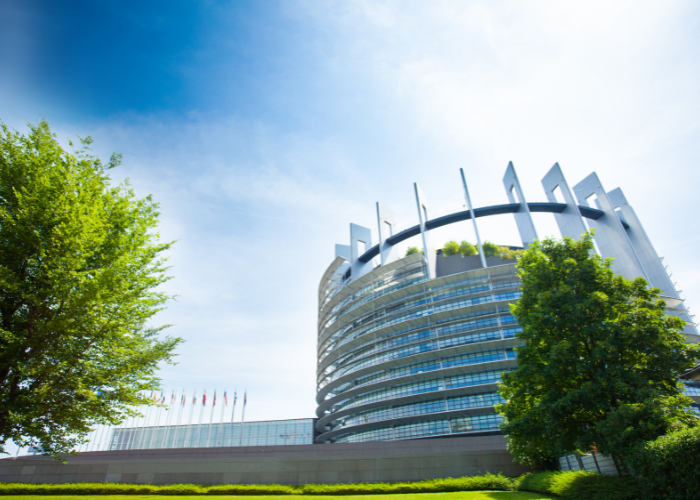All the “Backlog” of the European ParliamentL'IDEA BY ANTONIO PICASSO
- 11 June 2024
- Posted by: Competere
- Category: Senza categoria

The outgoing legislature deserves credit for attempting to find a balance between the economy, society, and the environment. Future leaders should be reminded not to fall into the trap of green ideology.
The outgoing European Parliament leaves its successor with 63 legislative proposals submitted by the Commission, never approved, and still awaiting debate. Without examining all of them, let’s prioritize the most strategic and urgent topics. In 2019, the von der Leyen Commission promised to change the face of the Old Continent thanks to some of these proposals. What remains of it?
EU AND DEFENSE: TOWARDS A COMMON ARMY?
In fact, we need to start with what was not on the agenda, but today could truly transform the European Union.
The Russo-Ukrainian war has dusted off the old dossier on a common European army. But it’s not just Putin making it relevant. NATO is turning 75, and if Trump is elected in November, a restructuring would be plausible. Consequently, the question arises whether it is worth having a transatlantic defense structure and a continental one that duplicates it. So, how sensible is von der Leyen’s proposal to create an EU Commissioner for Defense and Security?
ENERGY: HOW TO ACHIEVE NEUTRALITY?
Then there is energy. In 2023, 37 billion euros were still being paid to Russia for oil and gas. To break free from the Kremlin’s grip, we need to accelerate the use of alternative sources. For example, is it realistic to focus on hydrogen? Yes, but it’s costly, in terms of technology and development. China and Japan are ahead of us. Importing it from them would mean remaining dependent and not achieving the energy neutrality so essential to the green transition. So? The energy mix would be feasible if a compromise were found. For example, between those pushing for wind power (Germany) and nuclear (France).
INDUSTRY: THE CHALLENGE OF ELECTRIC CARS
Let’s move on to industry. For over half a century, European cars – the epitome of manufacturing – have remained the world status symbol for design and speed. The shift to electric, as conceived five years ago, is not happening. Transforming a supply chain and making it zero-emission, for both process and product, in just twenty years is not feasible. However, instead of promoting investments to be autonomous in technology, efforts are being made to avoid having too many Chinese-made electric cars on European roads. Without realizing that in Beijing the rule is “immediate duty=duty imposed”. So, for every seized car of theirs, there follows a block on an exported EU product. Italian and French wine and dairy companies already know this.
AGRIFOOD: BETWEEN SUSTAINABILITY AND PRODUCTIVITY
And so we come to agrifood. The Farm to Fork, part of the Green Deal, was supposed to revolutionize the identity of European agriculture. Then farmers, with the slogan “no farmers no food”, pointed out that without farming, there are 450 million consumers to feed, and we are forced to import. So much for CO2 emissions and quality. This deserves to be mentioned today, World Food Safety Day. The new common agricultural policies need to be almost completely redefined. From pesticides – which cannot be completely abandoned – to new genomic techniques to make crops more productive.
EU AND CITIZENS: A RELATIONSHIP TO RETHINK
Finally, let’s address the EU institutions-citizen relationship. It has often been said that the former exceed in imposing measures to the detriment of the latter. Food policies are an example. This legislature will also be remembered for its attempts to dictate what consumers should eat. The Nutriscore, the traffic light labeling system that classifies foods based on an algorithm, was born with the noble goal of reducing diet-related diseases from excess. Mission failed! Obesity is on the rise, and draconian food education policies have proven ineffective. Will Brussels persist with front-of-pack labels that unappealably discriminate between good and bad food, or will it have the courage to explore more innovative and digital solutions that also involve nutrition?
NEW PARLIAMENT: OVERCOMING IDEOLOGY FOR A PRAGMATIC APPROACH
Given all this, the outgoing legislature deserves credit for trying to find a balance between the economy, society, and the environment. But the next parliament should be reminded not to fall into the trap of the green – ideology! Whatever it takes – as well as avoid failing to adapt to independent variables. A pandemic and a war should have prompted Brussels to reformulate policies in progress. The new parliament will have enough time to get up to speed. The opening plenary in Strasbourg is scheduled for the end of June. This will be followed by the formation of groups and parliamentary committees. Then there will be the selection of the Commission.
The appointment is for after the summer, or even early 2025. Six months of preparation useful for creating a true European political class. Will it be enough?
.
Article published in Italian on Il Riformista>>>
